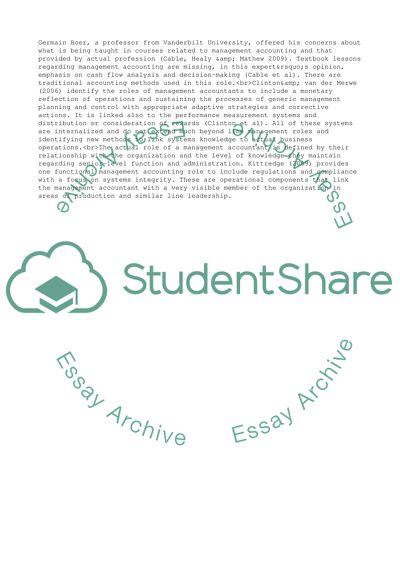Cite this document
(The Future of Management Accounting Coursework Example | Topics and Well Written Essays - 2500 words, n.d.)
The Future of Management Accounting Coursework Example | Topics and Well Written Essays - 2500 words. Retrieved from https://studentshare.org/management/1745514-does-future-of-management-accounting-lie-in-strategic-management-accounting
The Future of Management Accounting Coursework Example | Topics and Well Written Essays - 2500 words. Retrieved from https://studentshare.org/management/1745514-does-future-of-management-accounting-lie-in-strategic-management-accounting
(The Future of Management Accounting Coursework Example | Topics and Well Written Essays - 2500 Words)
The Future of Management Accounting Coursework Example | Topics and Well Written Essays - 2500 Words. https://studentshare.org/management/1745514-does-future-of-management-accounting-lie-in-strategic-management-accounting.
The Future of Management Accounting Coursework Example | Topics and Well Written Essays - 2500 Words. https://studentshare.org/management/1745514-does-future-of-management-accounting-lie-in-strategic-management-accounting.
“The Future of Management Accounting Coursework Example | Topics and Well Written Essays - 2500 Words”, n.d. https://studentshare.org/management/1745514-does-future-of-management-accounting-lie-in-strategic-management-accounting.


